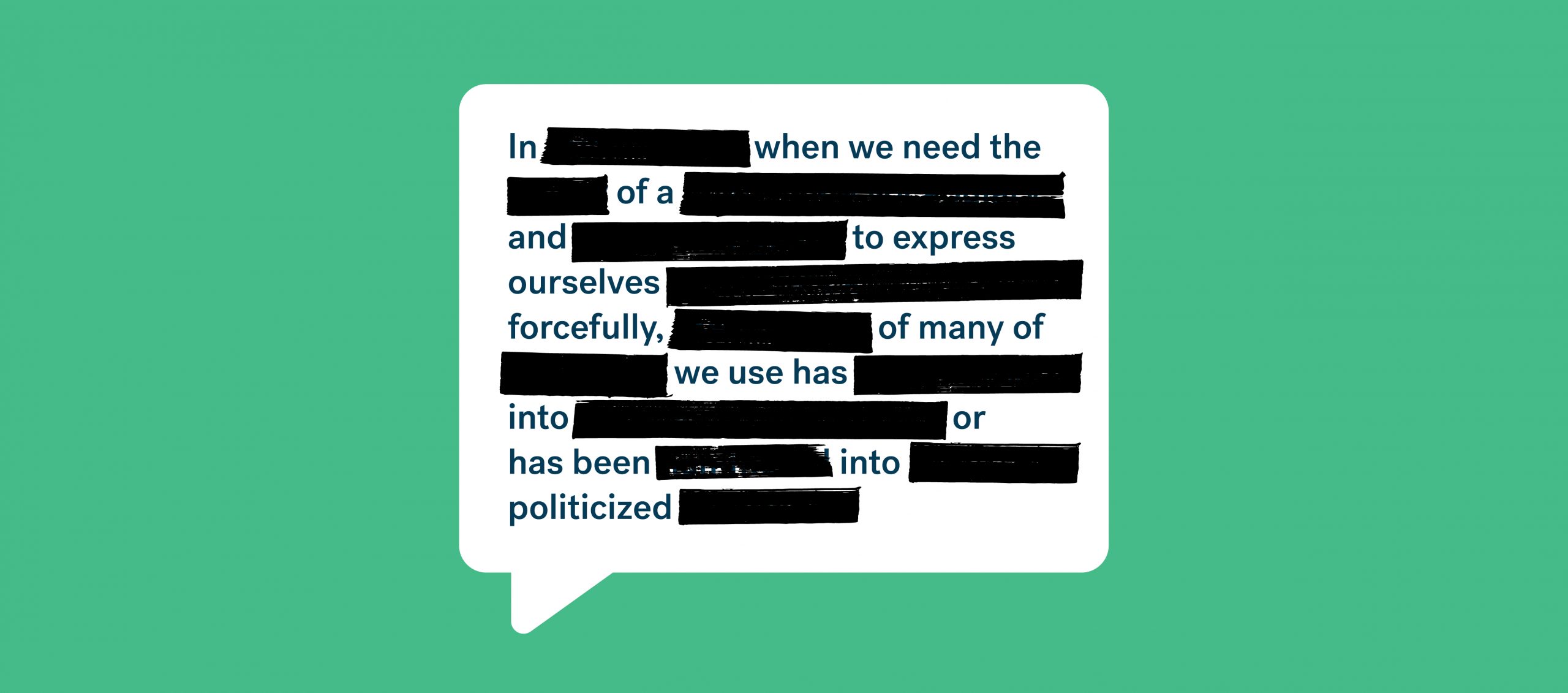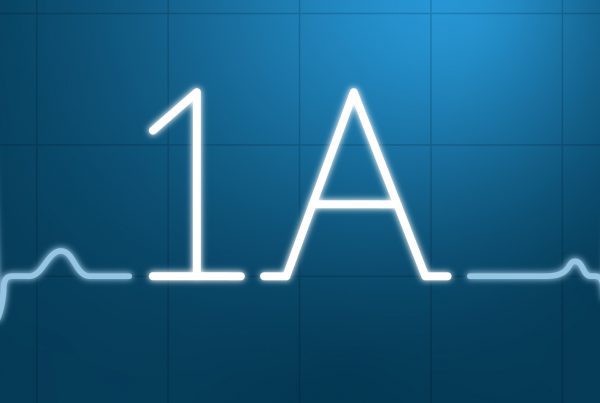We’re at a loss for words.
In this moment when we need the power of a compelling vocabulary and precise language to express ourselves accurately and forcefully, the meaning of many of the words we use has evaporated into vacuous space-holders or has been hammered into politicized landmines.
Not only is there a general erosion of trust, there’s also an erosion of the very words we use to build trust.
Consider “Words that Divide,” a national Harris Poll survey that tested the divisiveness of “conservative,” “underrepresented,” “progressive,” “DEI,” “pride” and other apparently dangerous gatherings of vowels and consonants. All those words are flash points for somebody.
This matters for all in healthcare, charged as you are with caring for and communicating with everybody – whatever the political zip code where they choose to live – and for staunchly defending the services you provide them.
Words matter. Good leaders are word people. Good leaders are perpetual students of persuasive language and the dance of words that invites others to join in a bigger story about their organization or their community or their health.
For leaders, words are tools you use as artisans. Words build worlds. Words are medicine, too. Just ask Google about its 363 million links to “healing words.” We protect and strengthen words – and the meaning they carry – by using them vigorously and well.
Words are ideas covered in ink, so that we can see them and share them and define them together. “A drop of ink may make a million think,” says Byron. Yes, well, what if some people would rather react than think?
Some words have become weaponized explosives deployed in a culture war in which many providers find themselves on the front line because of the care they offer or the humans they serve.
In today’s withering hothouse it can feel as if every organism in our cultural environment has been contaminated by politics, including our language. Every syllable a political litmus test.
“DEI, like many of these acronyms and phrases, have devolved into ideological dog whistles,” says John Gerzema, CEO of The Harris Poll. “Americans hear and sort them like voters, instead of consumers. They’re either red or blue.”
Yes, says NBC’s chief political analyst Chuck Todd: “The political world has diluted the meanings of words and phrases so effectively (and, in some cases, done a full gaslight on phrases like “fake news”) that it has blunted the impact of some words compared to even 10 years ago…The absurd rhetoric borders on insulting one’s intelligence.”
Ahem… Borders on insulting? It crossed the border several years ago. It slipped under the social media razor wire during the pandemic and has never looked back.
This sad word play is discouraging, of course, but not surprising. This pot has been boiling a long time.
Healthcare leaders should anticipate (and, many have) the arrival of this linguistic challenge. It may come through a reporter’s email or a lawmaker’s bill or an activist’s demands.
The questions will come: What are you doing about X? Where do you stand on Y? Do you offer Z?
The smart move is to anticipate, discuss and prepare your answers today, using your own terms unconstrained by the limited definitions others may use. Ask:
- Where will your organization stand its ground?
- Where will you work to explain?
- Where, if anywhere, will you evolve in response?
But wait. It’s not just politics. Lest we think that we, in healthcare, are without sin on the topic of watery words, let’s discuss the muddled definitions in our own industrial vocabulary that does us no favors (when we need every favor we can muster).
We’ll go first: “charity” and its cousins “charity care” and “community benefit.” What is that? How do you define it? Is it the same definition used by your competition? By your patients? By your community? Or is it unique to your organization?
You know the answer. For a host of reasons – state and federal laws, CMS rules, attorneys general and more – the definition of this seemingly simple phrase is stretched to extremes, sometimes within the same market.
To your CFO, it makes perfect sense. It’s math. To outsiders? Maybe it’s “free care.” To media, lay lawmakers, patients and colleagues, the supple definition of “charity” that changes from organization to organization can easily appear disingenuous. Fraudulent, even. We’re gaming the word, it seems, hiding behind its soft, good-hearted intent for our financial gain.
Who doesn’t like wiggle room? Organizations may well benefit from the lack of definition. But longer term there’s a cost.
Perhaps that lack of verbal clarity is a reason many believe hospitals are “more focused on making money” than on patients. In fact, 69 percent of the 1,600+ respondents in our latest national consumer survey affirmed that very statement.
How does that not make healthcare a target for money-focused lawmakers and exhausted, out-of-pocket healthcare consumers?
So. Some parting words on words.
Align on a national healthcare lexicon.
We are a highly fragmented industry. Our nation’s biggest health systems pale in comparison to other consolidated industries and other healthcare players (hello, payers). It’s a challenge for our diverse organizations to work together for common cause.
Even so, if nothing else, can we align on our lexicon? Can we agree on the language of healthcare delivery and the definitions we use so that we can consistently advocate for the care we deliver and the mission we serve? It’s a consummation devoutly to be wished, as someone said. A common vocabulary would serve our industry well.
Be a teacher.
Define the healthcare words you use that may be easily misunderstood. Assume little about your audience – even those steeped in clinical care – and give yourself time to unpack them for shared understanding. Turn that watery language of healthcare to crystal clear ice.
Be ready for the word war.
State lawmakers are gathering across the U.S. this quarter, many with great intent, others preparing to sling rhetorical craziness into the air. Legislation related to transgender rights, abortion access, and DEI are in the mix in one state or another, often deploying signaling words to draw attention, support and disdain. No doubt, there’s a chance your organization may be invited into the conversation. Choose your words carefully.
Contributors: Emme Nelson Baxter, David Shifrin
Image Credit: Shannon Threadgill




